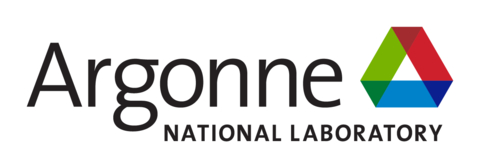Argonne Leverages AI and Supercomputing to Revolutionize Cancer Research
Argonne Leverages AI and Supercomputing to Revolutionize Cancer Research
LEMONT, Ill.--(BUSINESS WIRE)--Discovering new drugs to treat cancer and predicting how tumors will respond to them remain key challenges in the fight against the disease.
At the U.S. Department of Energy’s (DOE) Argonne National Laboratory, researchers are using the power of artificial intelligence (AI) and high performance computing (HPC) to pioneer new methods that speed up drug discovery and enhance drug response prediction. Over the past decade, their efforts have evolved from creating AI tools for cancer research to evaluating the growing number of AI models, ultimately leading to their latest work aimed at drug-resistant cancer targets.
Using the new Aurora exascale system, researchers led an early science project that focused on AI-driven drug discovery for cancer. Their work demonstrated how the system’s immense processing power can help accelerate the discovery of promising new drug molecules.
A decade of AI-driven innovation
The origins of Argonne’s AI-driven cancer research date back to 2016, when DOE forged a partnership with National Cancer Institute (NCI) to employ advanced computing technologies in the fight against cancer. Argonne has been a key player in this collaboration, developing software and AI tools to accelerate progress in cancer research.
A cornerstone of this effort was the CANcer Distributed Learning Environment (CANDLE) project. Led by Argonne’s Rick Stevens and supported by DOE’s Exascale Computing Project, CANDLE’s goal was to develop a scalable deep learning software stack for the nation’s exascale supercomputers.
With that foundation, the lab’s focus extended from building AI models to developing a rigorous method to assess the growing number of models emerging from the broader cancer research community.
This shift led to the launch of the IMPROVE (Innovative Methodologies and New Data for Predictive Oncology Model Evaluation) project in 2021. Led by Argonne in collaboration with Frederick National Laboratory for Cancer Research, the IMPROVE team set out to develop a standardized way to analyze and compare the performance of various drug response prediction models.
While the team’s efforts are laying the groundwork for more reliable and effective AI models, the project continues to evolve to meet new challenges as they emerge.
The next frontier: “undruggable” targets
Expanding on the DOE-NCI efforts, researchers are now setting their sights on a longstanding challenge in cancer research: “undruggable” targets (proteins that are known to resist chemical treatments).
With a focus on proteins that play a key role in cancer progression, the team’s work begins with a list of targets identified through lab experiments. The researchers then retrieve the protein sequences from public databases. If a protein’s 3D structure is unknown, they work with scientists at the Advanced Photon Source (APS), a DOE Office of Science user facility, to determine it. The APS was recently upgraded to deliver significantly brighter X-ray beams, giving scientists a powerful tool to advance research across different fields.
After determining the protein’s structure, the team turns to Aurora to simulate the behavior and interactions of the protein at the atomic level. The simulations combined with experimental data help identify areas where small molecules might bind to inhibit the protein’s activity.
The computational results are then relayed to experimental collaborators to validate the findings. Adding to the challenge is the team’s focus on undruggable targets. Inhibiting these proteins has eluded researchers for decades, earning them a reputation as one of the most difficult problems in cancer biology.
Contacts
Christopher J. Kramer
Head of Media Relations
Argonne National Laboratory
Office: 630.252.5580
Email: media@anl.gov
